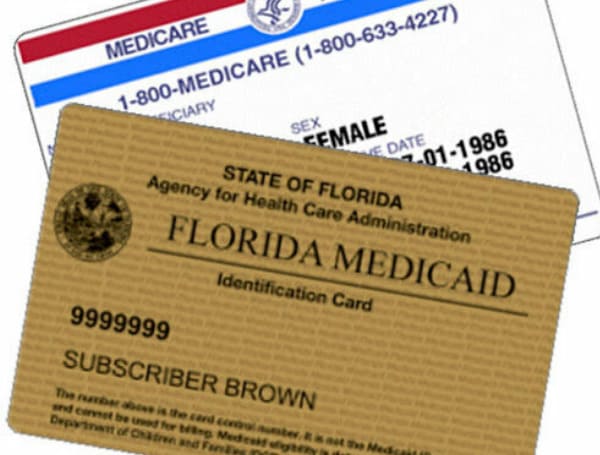Accessing and maintaining Medicaid coverage can be a daunting challenge for many individuals and families across the United States.
Medicaid, a joint federal-state healthcare program, provides essential medical and long-term care services to low-income populations, including children, pregnant women, the elderly, and individuals with disabilities.
However, the process of enrolling and staying enrolled in Medicaid is often fraught with complexities, bureaucratic hurdles, and administrative barriers that can leave vulnerable populations struggling to retain their much-needed healthcare benefits.
Read: Florida Home Health Services Agency Owner And Parent Of Disabled Child Charged In Medicaid Fraud
The Enrollment Conundrum
Enrolling in Medicaid can be a complex and arduous process, with applicants often required to navigate a maze of paperwork, documentation requirements, and eligibility criteria.
Many individuals face language barriers, limited access to technology, or lack the resources to effectively navigate the enrollment system, leading to significant gaps in coverage.
Additionally, the recertification process, which requires periodic renewal of Medicaid eligibility, can be a significant challenge for recipients, leading to unintended lapses in coverage.
Barriers to Maintaining Enrollment
Once enrolled, Medicaid recipients often face ongoing challenges in maintaining their coverage.
Changes in income, employment status, or family circumstances can trigger eligibility reviews, leading to potential coverage disruptions.
Read: Arguments Slated In Florida On Medicaid Trans Coverage
Bureaucratic delays, communication breakdowns, and administrative errors can further compound the problem, leaving individuals unsure of their coverage status and uncertain about their ability to access necessary healthcare services.
The Impact of Coverage Disruptions
The consequences of Medicaid coverage disruptions can be severe, particularly for vulnerable populations. Individuals may forgo essential medical care, leading to worsening health conditions, increased use of emergency services, and higher overall healthcare costs.
For families, the loss of Medicaid coverage can create financial hardship, limit access to preventive care, and exacerbate existing health disparities.
To address the challenges faced by Medicaid recipients, policymakers, healthcare providers, and community organizations must work together to streamline the enrollment and recertification processes, improve communication and outreach, and provide targeted support to those at risk of coverage disruptions. Strategies such as implementing automatic renewal mechanisms, expanding telehealth options, and enhancing case management services can help ensure that Medicaid recipients can reliably access the healthcare they need.
Technological advancements can also play a crucial role in improving Medicaid enrollment and retention. Online portals, mobile applications, and integrated data systems can simplify the application and renewal process, reduce administrative burdens, and enable real-time eligibility tracking. By leveraging technology, Medicaid programs can become more user-friendly, responsive, and effective in serving their beneficiaries.
Addressing the challenges faced by Medicaid recipients requires a collaborative effort among various stakeholders, including government agencies, healthcare providers, community organizations, and advocacy groups. By working together to identify and address systemic barriers, these stakeholders can develop comprehensive solutions that prioritize the needs of Medicaid recipients and ensure equitable access to healthcare.
Maintaining continuous Medicaid coverage is essential for ensuring that individuals and families can access the healthcare services they require without interruption. Disruptions in coverage can lead to delayed or forgone care, worsening health outcomes, and increased financial burdens, particularly for those with chronic or complex medical conditions.
Beyond the immediate challenges of Medicaid enrollment and retention, addressing the broader social determinants of health is crucial for supporting the well-being of Medicaid recipients. Factors such as housing, education, employment, and access to nutritious food can have a significant impact on an individual’s health and healthcare utilization. By addressing these social determinants, Medicaid programs can adopt a more holistic approach to improving health outcomes and reducing disparities.
Empowering Medicaid recipients to navigate the healthcare system and advocate for their own needs is a critical component of ensuring successful coverage and care. This may involve providing educational resources, training on self-advocacy skills, and connecting recipients with community-based support services. By fostering a sense of agency and self-efficacy, Medicaid recipients can become active participants in their own healthcare journeys.
Collaborating with community-based organizations, faith-based institutions, and local leaders can be an effective strategy for reaching and supporting Medicaid recipients. These partnerships can facilitate outreach, enhance trust, and provide tailored assistance to individuals and families who may face unique barriers to accessing and maintaining Medicaid coverage.
Ongoing monitoring, data analysis, and program evaluation are essential for identifying and addressing the evolving challenges faced by Medicaid recipients. By regularly assessing the effectiveness of enrollment and retention strategies, policymakers and program administrators can make data-driven decisions, implement continuous improvements, and ensure that Medicaid programs remain responsive to the needs of the populations they serve.
Help support the Tampa Free Press by making any small donation by clicking here.
Android Users, Click To Download The Tampa Free Press App And Never Miss A Story. Follow Us On Facebook and Twitter. Sign up for our free newsletter.



